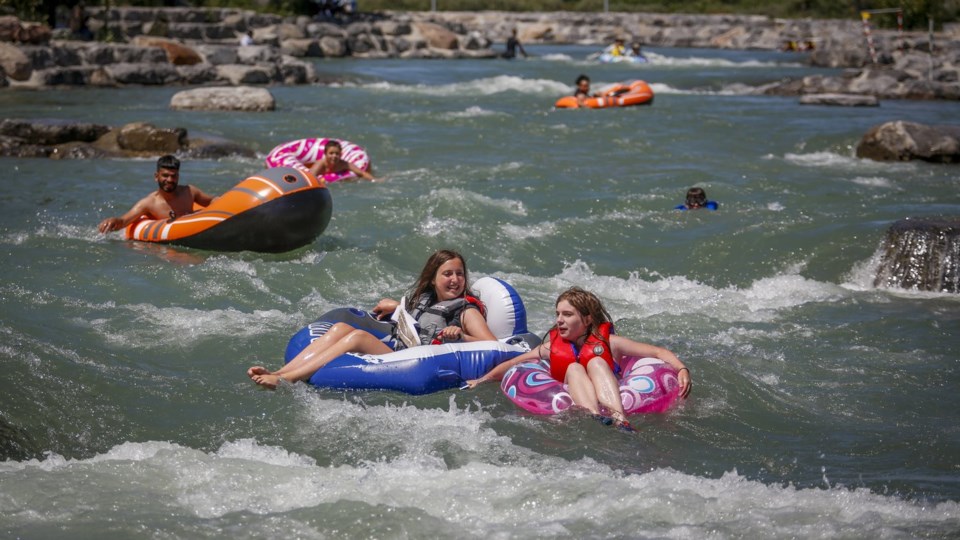CALGARY — As Western Canadians sweat under a renewed heat wave, crews in Calgary are scrambling to bail out rivergoers trying to stay cool on dime-store pink flamingo floaties.
The Calgary Fire Department says most of the 50 calls it has responded to this month have been to rescue people stranded on the Bow River because their plastic rafts, designed for pools, are deflating in the swift current.
Fire department spokeswoman Carol Henke says floaters and paddle boarders need to remember to put on life-jackets.
The number of people expecting to seek relief on rivers is expected to rise in the coming days, as temperatures are forecast to spike into the 30 C range.
Environment and Climate Canada meteorologist Terri Lang says heat warnings have been issued for most of Alberta, western and northern Saskatchewan and parts of the Northwest Territories and British Columbia.
She says temperatures over the next six days are expected to be hottest in Alberta and Saskatchewan, where some communities are to reach highs of about 35 C, and overnight lows between 12 C and 20 C.
“For this heat event, it’s not so much the intensity as opposed to the duration people should be aware of,” Lang said Wednesday.
“We’re not getting those 40 C egg-fryers. It’s more about (the temperature spike) is going to be for a while.”
Lang added the weather can be tough for people who don’t have air conditioning, including the elderly, those with health conditions, first responders and the homeless.
“There’s a lot more that go into heat warnings than just, 'Let’s get out to the lake and get on the boat,'” Lang said.
Temperatures may start to cool down by the middle of next week, she said.
“It’s not looking like anything (changes) any time soon."
This report by The Canadian Press was first published July 17, 2024.
The Canadian Press




